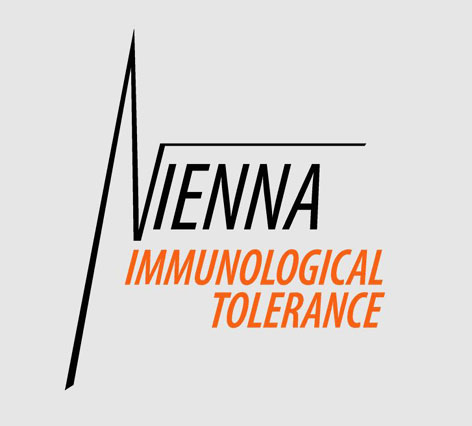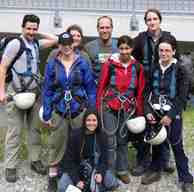
MECHANISMS OF ESTABLISHMENT AND MAINTENANCE OF IMMUNOLOGICAL TOLERANCE
SFB-F23 A SPEZIALFORSCHUNGSBEREICH FUNFED BY THE FWF
 |
MECHANISMS OF ESTABLISHMENT AND MAINTENANCE OF IMMUNOLOGICAL TOLERANCESFB-F23 A SPEZIALFORSCHUNGSBEREICH FUNFED BY THE FWF |
MEMBERS Wilfried Ellmeier |
Ludger Klein
Institute of Molecular Pathology (IMP)
Dr.Bohrgasse 7
1030 Wien
AUSTRIA

Tel.: +43-1-79730-471
Fax: +43-1-7987-153
klein@imp.univie.ac.at
http://www.imp.univie.ac.at
Selection, homeostasis and function of CD4+CD25+ suppressor T cells with known antigen-specificity
SFB co-workers: Louise D'Cruz (PhD student); Jelena Neidjic (PhD student); Elisabeth Vollmann (Diploma Student)
Suppressor/regulatory T cells (CD4 + CD25 + T reg cells) are essential for the maintenance of immunological tolerance and the homeostasis of the healthy immune system. This T cell "lineage" is induced during intrathymic development through, most likely through encounter of self-antigens expressed by thymic epithelial cells. As a consequence, the repertoire of T reg cells, in contrast to that of conventional T cells, appears to be strongly biased towards recognition of self-antigens. The obvious therapeutic promise of cells mediating dominant tolerance has fueled great interest in T reg cells; however, numerous aspects of their biology remain unresolved.
Within the SFB, we are focusing on intrathymic selection events that shape the repertoire of T reg cells. In particular, we are trying to precisely understand under which circumstances autoreactive T cells are either deleted or instructed to become T reg cells. Potentially critical determinants in this decision that are currently under investigation are T cell intrinsic (developmental stage, signal strength) as well as extrinsic factors (stromal interaction partner, cytokine milieu, co-stimulation). In order to dissect these parameters, we are using T cell receptor and neo-self antigen transgenic mice in combination with mouse-strains that carry targeted mutations of particular candidate genes.